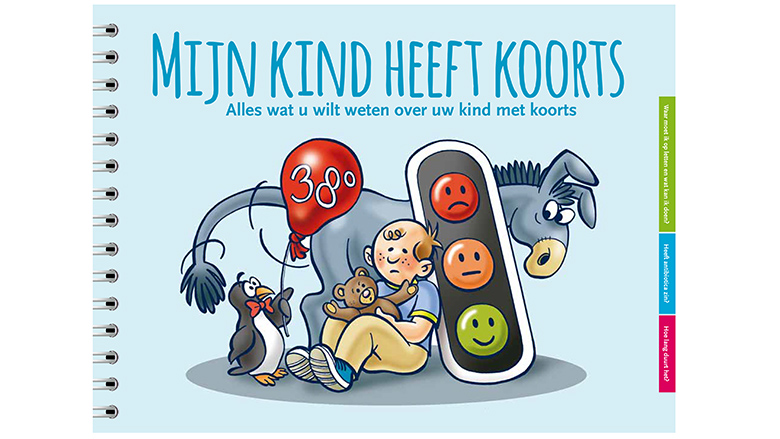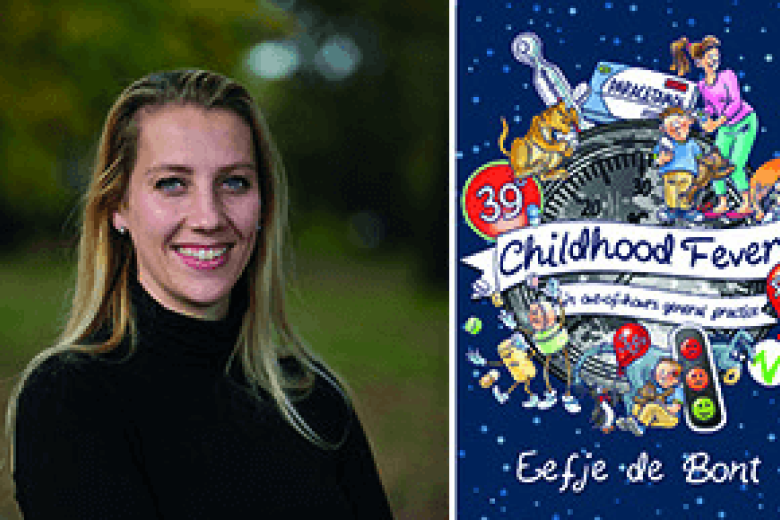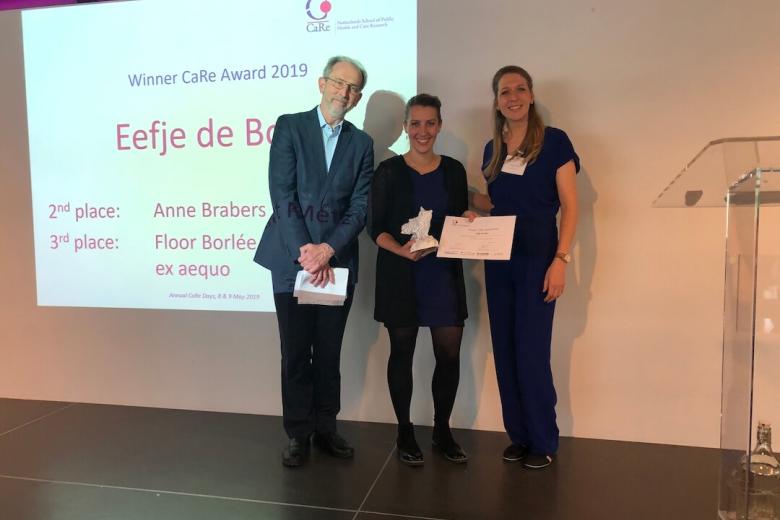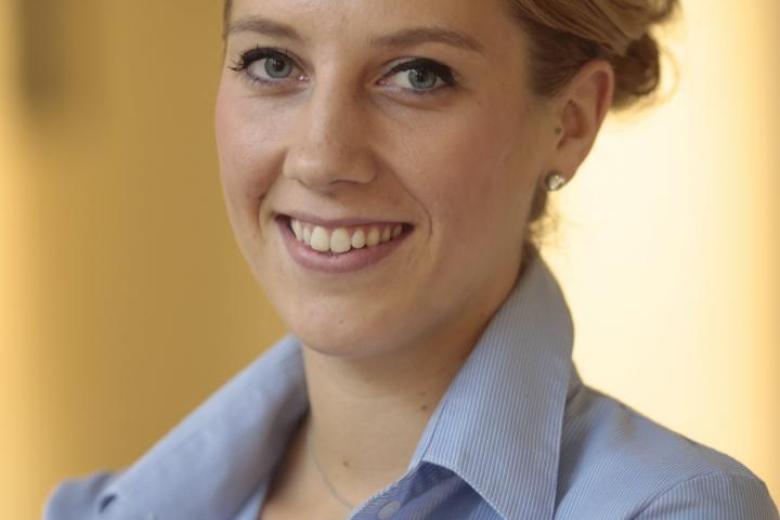More information, fewer antibiotic prescriptions

Results of the CHildhood Infections LImburg (CHILI) study
CAPHRI’s CHILI study has shown that the amount of unnecessary antibiotic prescribing for children can be reduced. Parents who took their child to a GP out-of-hours centre because of a fever were given an interactive information booklet. The advice and tips in these booklets may prevent thousands of children with fever from being unnecessarily prescribed antibiotics each year, estimates project leader Eefje de Bont.
Involved research lines
‘We often see children with fever in general practice,’ says Eefje de Bont, general practitioner (GP) and researcher at the Department of Family Medicine. ‘We see them even more often at GP out-of-hours centres. Most of these children are not seriously ill, but GPs always have to be alert to the possibility that a child is seriously ill. Out-of-hours centres are very busy and we have to use the limited consultation time well. Also, we usually don’t know the parents personally and it’s difficult to determine how well they will be able to follow our advice on warning signs. That’s why GPs often prescribe antibiotics unnecessarily. Better safe than sorry.’
Practically relevant
Together with general practitioner Jochen Cals, professor of Effective Diagnostics in General Practice at CAPHRI, De Bont wrote a research proposal to reduce unnecessary antibiotic prescribing for children with fever. Doing practically relevant research is very much in line with CAPHRI’s vision, as is using research to provide a scientific basis for general practice. This study has a real social impact, says Jochen Cals. ‘We immediately started using these materials. That’s very typical of CAPHRI: our research is very relevant to practice.’
Better information
Preliminary research for the CHILI study showed that 1 in 3 to 4 children with fever were prescribed antibiotics at an out-of-hours centre. Based on the usefulness and necessity of antibiotics, this should actually be 1 in 20, says De Bont. At the same time, parents’ answers to surveys and in interviews showed that they would rather not give their children antibiotics unnecessarily. What parents really wanted was information on what to do when their child has a fever. GPs said that they wanted to be able to provide parents with better support and useful advice.
To help them, the researchers developed an interactive information booklet. Parents can use a checklist with a traffic light system – where green means ‘safe’, orange means ‘caution’ and red means ‘go see your GP’ – to determine whether they need to take their child to the doctor. The booklet also offers practical advice. GPs can discuss it with parents in their practices so the parents will be able to use it at home.
Popular booklet
The booklet, which was co-developed by the Dutch Institute for Rational Use of Medicine, was tested in out-of-hours centres. Half of the participating centres continued to provide the same care for children with fever; the other half started giving parents the interactive booklet. In six months’ time, the information reached 25,000 children and their parents.
The booklets soon became so popular that GPs took piles of them back to their own practices, laughs De Bont. And that wasn’t the only result. GPs who used the booklet began to prescribe antibiotics less often. Parents said that they would be less likely to take their child to the doctor with similar symptoms in the future. ‘The number of prescriptions went from roughly 1 in 4 to 1 in 5,’ says De Bont. ‘Extrapolated to the entire country, that would mean a reduction of thousands of antibiotic prescriptions. That’s what you can achieve simply by providing information, which is one of your responsibilities as a GP anyway.’
Follow-up study
De Bont informed the Dutch College of General Practitioners of the booklet and made it available for download through its website thuisarts.nl. A follow-up study focused on childcare centres, say De Bont and Cals. Although childcare professionals often have to deal with children with fever and their parents, they are not medically trained to handle these kinds of situations. PhD student Kirsten Peetoom worked together with childcare centres to develop information materials for them. A training course and a decision tree will help childcare professionals determine when a child with fever can be admitted to or stay at the childcare centre, what to do if a child is experiencing discomfort or pain, and when to take the child to see a doctor.
More knowledge
For the study, employees at half of the participating childcare centres were trained and employees at the other half weren’t. There was no measurable difference in the number of children who stayed home sick, says Cals. ‘But the employees’ knowledge, attitudes and perceptions about ill children had changed. For example, they were less scared of febrile seizures. These kinds of changes are needed in order to bring about behavioural changes. Parents and childcare professionals are now able to have more open conversations about children with fever and have gained a better understanding of each other’s positions.’
E-learning module
Childcare professionals need to have knowledge and training, says Cals, especially about infectious diseases and fever. The researchers are now working together with the Dutch Institute for Rational Use of Medicine to create an e-learning module based on the training course they developed. The interactive information booklet will also be included in GroeiGids (“Growth Guide”), an online platform developed by the Public Health Service of Amsterdam, so that employees of children’s healthcare centres can point parents in its direction. ‘And if it’s up to us, every GP will soon be able to order the physical booklet to use in their own practice,’ says De Bont.
Text: Veronique Huijbregts
Translation: Emdash
Prizes and awards
In 2019, the Dutch College of General Practitioners awarded Eefje de Bont with their Science Prize for best scientific publication by a GP or GP in training. She has also been awarded the Telesphorus Prize for best dissertation written by a GP or GP in training, the CAPHRI Award, and the CaRe Award. Among other things, her study has been praised for its bottom-up design and its potential for large-scale implementation.



